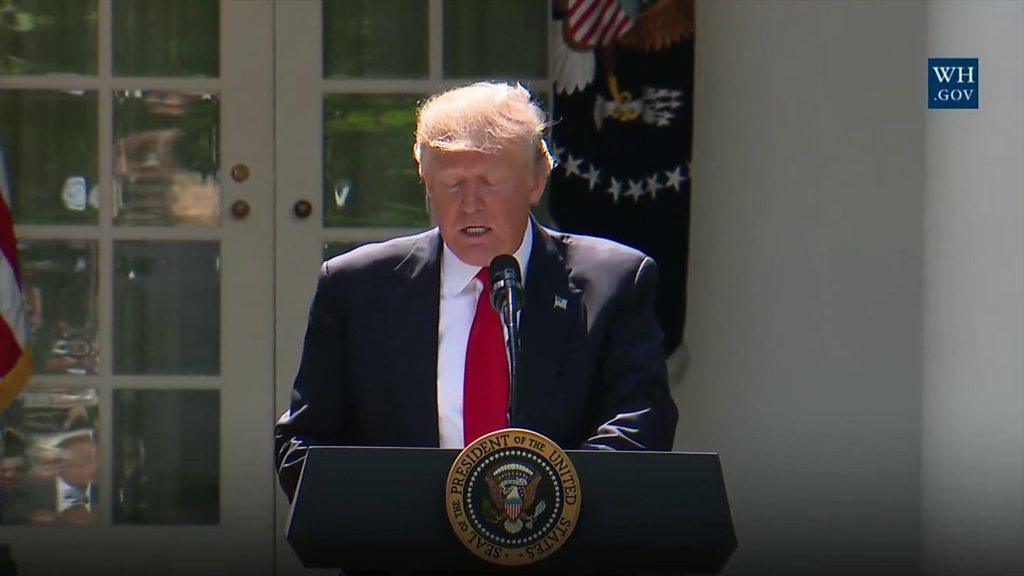Job loss fears in India after Trump tariff shock
- Published
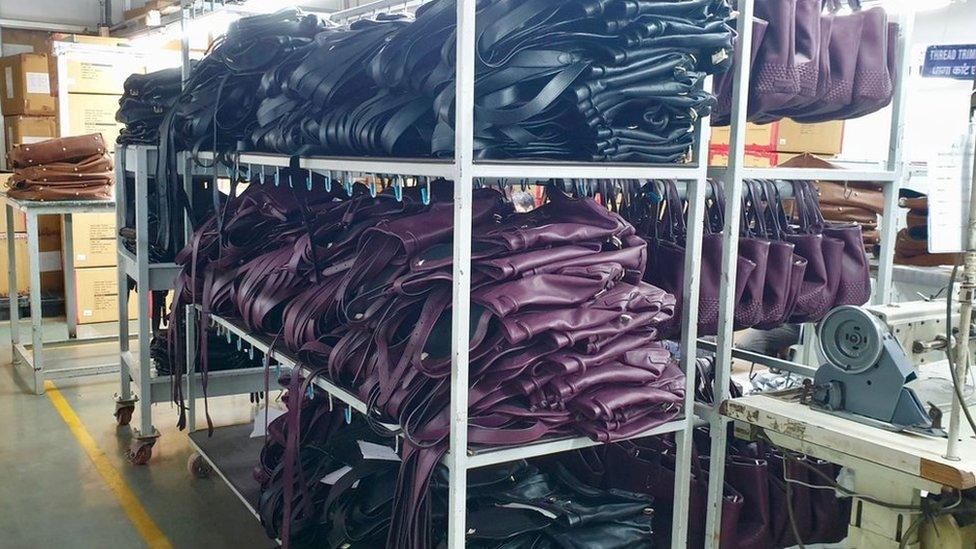
Mr Leekha's factory manufactures leather goods
If you've bought a luxury leather handbag in Milan or Manhattan recently, chances are high that it was made in Sanjay Leekha's three-storey factory in Faridabad on the outskirts of Delhi.
But on Wednesday, the 33-year-old family-owned business - along with thousands of other Indian manufacturers - will become the latest victim of the Trump administration's effort to reshape its international trading relationships.
Exporters of goods including imitation jewellery, building materials, solar cells and processed food will face a hike of up to 10% in the US tariffs imposed on their products, following the White House's revocation of India's membership of the Generalized System of Preferences, or GSP.
First introduced in 1976, the GSP is a preferential trading agreement between the US and more than 120 countries and territories. It's designed to help developing countries grow their economies, while bringing down the price of imported products for American consumers.
India was by far the largest beneficiary of the GSP - $6.3bn (£4.9bn) of its exports enjoyed concessionary tariffs - or no tariffs at all - in the United States last year.
Among the companies to have gained a significant competitive advantage from GSP exemptions is Mr Leekha's firm, Alpine Apparels, which produces as many as 40,000 handbags a month. But US buyers of his bespoke products are already asking the firm to absorb the cost of higher levies by reducing its prices.
If he is forced to do that, Mr Leekha says, he will eventually have no choice but to lay off some of his 1,000 employees.
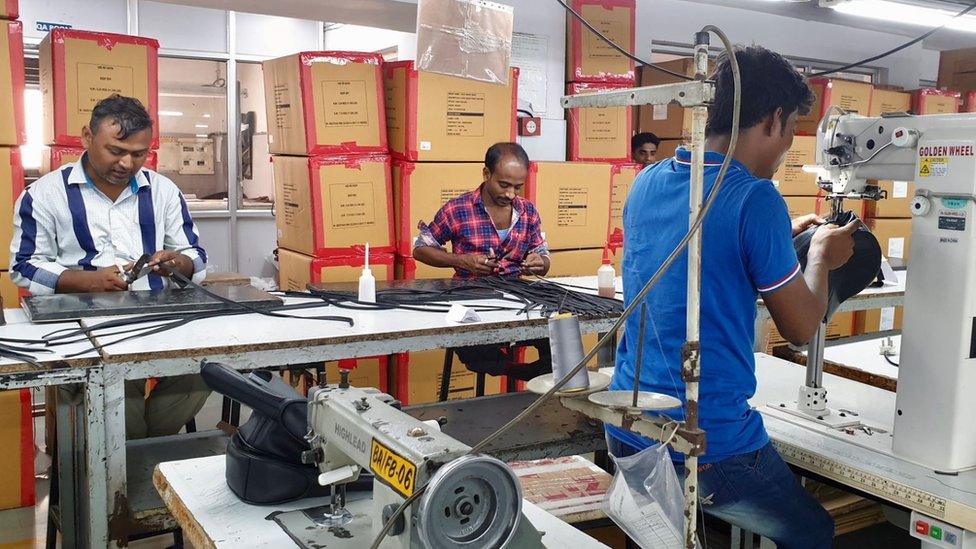
Alpine Apparels employs about 1,000 people
The hope in Washington is that the blow to Alpine, and its fellow former GSP beneficiaries, will prompt a cry of anguish from Indian businesses that will lead to a rethink in Prime Minister Narendra Modi's new government.
In a statement last week, US President Donald Trump explained that India's ousting was a form of retribution - he accused the country of not having provided US companies "equitable and reasonable access" to its markets.
The background to that complaint is an ongoing dispute over permissions to sell medical devices and certain dairy products to Indian consumers.

Read more about the Indian economy

The US wants American firms to be able to bypass India's strict price controls on healthcare products, imposed to keep the cost down for poorer citizens. It also wants businesses to be able to sell cheeses from animals which have been raised on feed containing bovine extracts - a proposition that the Indian government says would offend the religious and cultural sensitivities of many of its citizens. (Hindus, who make up about 80% of the Indian population, consider cows to be sacred and many do not consume beef or its by-products.)
The Coalition for GSP, a US-based campaign group, say the Trump administration's retaliatory decision will ultimately prove counterproductive, and cost American businesses over $300m in additional tariffs each year.
In their written testimonies to the US government, some of the country's largest businesses seem to agree.
Retail giant Walmart, for example, says India's membership of the GSP programme benefited its US customers "by removing millions of dollars of duty costs that act as a tax" on its products.
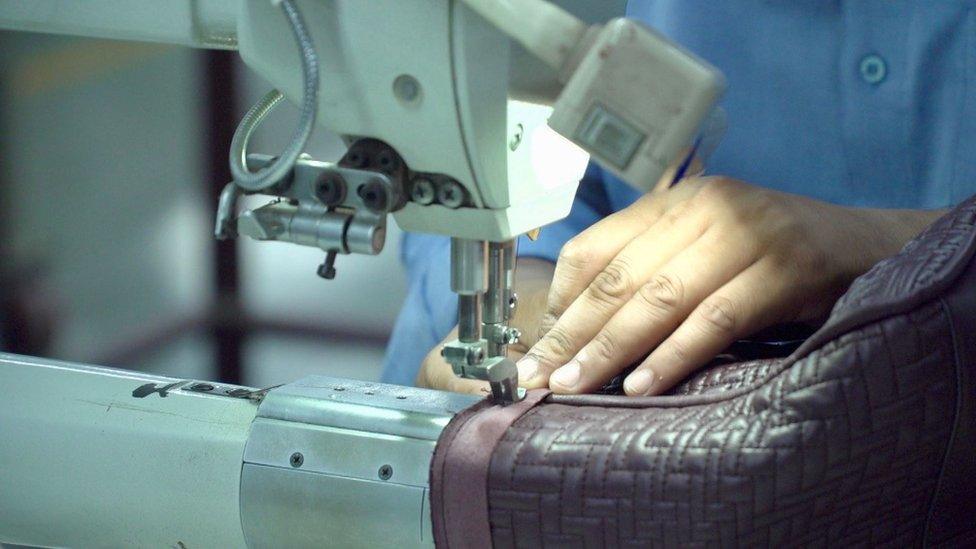
Indian exporters fear they will hit the hardest
But Mr Leekha says the impact will largely be felt by Indian suppliers, who will have become less competitive overnight after being "singled out" by Donald Trump's team.
"The removal of GSP is only happening to India and Turkey, giving other developing economies an economic advantage," he explains.
Exporters like him, he insists, will be forced to slash their profit margins.
"This will lead to us having to say no to some business, or some business actually moving away from us to others countries which are still availing themselves of the GSP benefit, countries like Cambodia and Indonesia."
His fears may not be unfounded.
The American Apparel & Footwear Association, which represents brands including New Balance and Adidas, has warned the US government that the withdrawal of India's GSP benefits would leave companies with "no choice but to return to sourcing from China."
It added that tariffs on Chinese imports meant that "American consumers will pay far higher prices for their travel goods as a result."
Donald Trump has openly criticised India since becoming president
Either way, this move will provide the first major foreign policy challenge to Mr Modi's new cabinet.
Thus far, the Indian government's response has been muted, suggesting the blow may be more of a diplomatic nature than an economic one.
"If you look at the broader picture, our exports to the US are around $51.2bn," says Ajay Sahai, director general of the Federation of Indian Export Organisations.
He estimates the net tariff advantage of being a GSP member at a mere $260m.
Although trading under GSP has been "a win-win situation for both countries," Mr Sahai says that "on a macro level, we can say the impact [of ending India's GSP membership] will be minimum".
Nonetheless, the US president's actions mark a political moment.
From bear-hugs in the Rose Garden to warm words on Twitter, Mr Modi has largely been spared the worst of Mr Trump's wrath.
But the two strongmen - who have made much of economic and defence co-operation between their countries - are drifting apart on trade as they seek to protect what they see as competing interests back home.
- Published27 June 2017
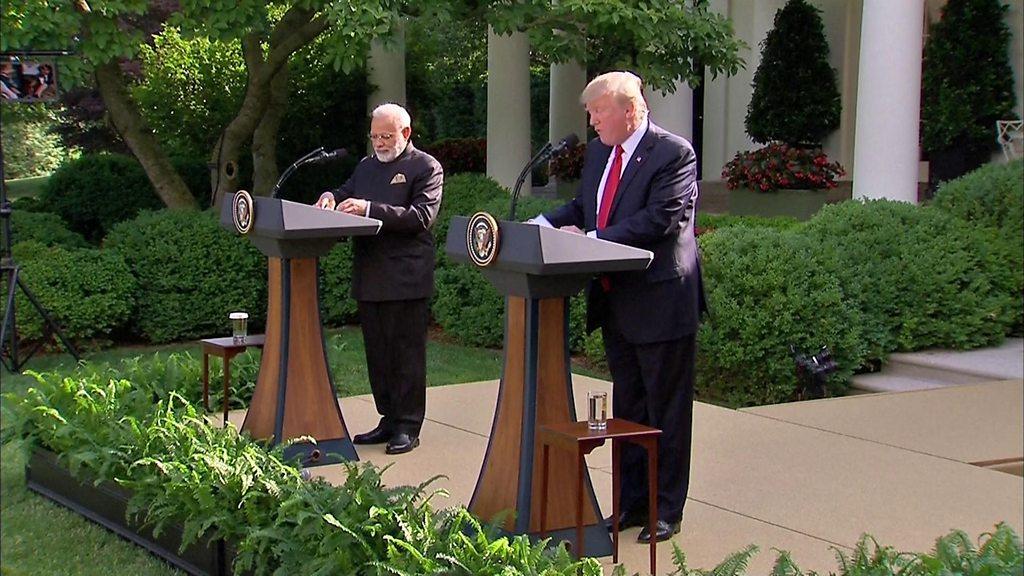
- Published26 June 2017
